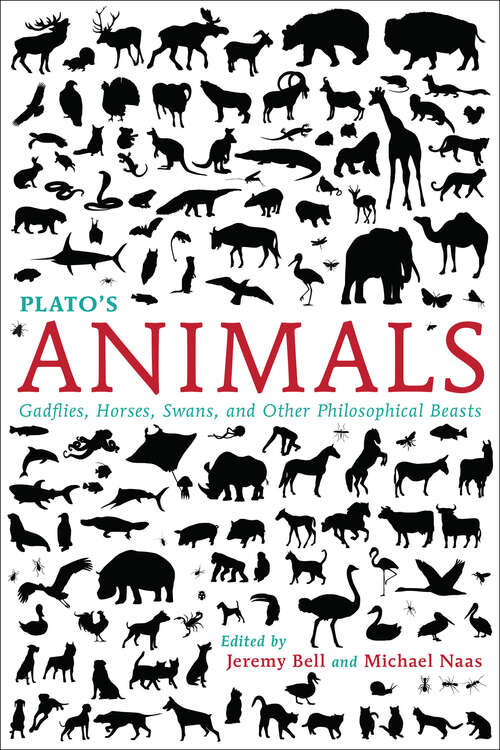Plato's Animals: Gadflies, Horses, Swans, and Other Philosophical Beasts (Studies in Continental Thought)
By:
Sign Up Now!
Already a Member? Log In
You must be logged into Bookshare to access this title.
Learn about membership options,
or view our freely available titles.
- Synopsis
- “A unique and intriguing point of entry into the dialogues and a variety of concerns from metaphysics and epistemology to ethics, politics, and aesthetics.” —Eric Sanday, University of KentuckyPlato’s Animals examines the crucial role played by animal images, metaphors, allusions, and analogies in Plato’s dialogues. These fourteen lively essays demonstrate that the gadflies, snakes, stingrays, swans, dogs, horses, and other animals that populate Plato’s work are not just rhetorical embellishments. Animals are central to Plato’s understanding of the hierarchy between animals, humans, and gods and are crucial to his ideas about education, sexuality, politics, aesthetics, the afterlife, the nature of the soul, and philosophy itself. The volume includes a comprehensive annotated index to Plato’s bestiary in both Greek and English.“Plato’s Animals is a strong volume of beautifully written paeans to postmodern themes found in premodern thought.” —Notre Dame Philosophical Reviews“Shows readers of Plato that he remains significant to issues currently pursued in Continental thought and especially in relation to Derrida and Heidegger.” —Robert Metcalf, University of Colorado, Denver“Will provide fertile ground for future work in this area.” —Jill Gordon, author of Plato’s Erotic World
- Copyright:
- 2015
Book Details
- Book Quality:
- Publisher Quality
- Book Size:
- 270 Pages
- ISBN-13:
- 9780253016201
- Related ISBNs:
- 9780253016171
- Publisher:
- Indiana University Press
- Date of Addition:
- 01/27/25
- Copyrighted By:
- Indiana University Press
- Adult content:
- No
- Language:
- English
- Has Image Descriptions:
- No
- Categories:
- History, Nonfiction, Philosophy
- Submitted By:
- Bookshare Staff
- Usage Restrictions:
- This is a copyrighted book.
- Edited by:
- Jeremy Bell
- Edited by:
- Michael Naas
